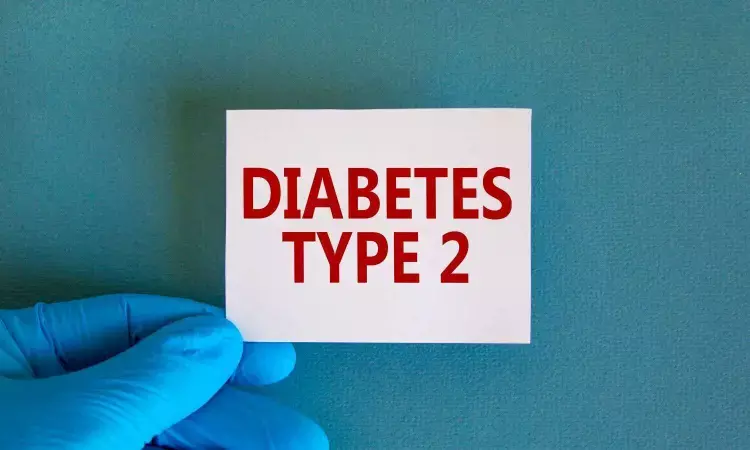- Home
- Medical news & Guidelines
- Anesthesiology
- Cardiology and CTVS
- Critical Care
- Dentistry
- Dermatology
- Diabetes and Endocrinology
- ENT
- Gastroenterology
- Medicine
- Nephrology
- Neurology
- Obstretics-Gynaecology
- Oncology
- Ophthalmology
- Orthopaedics
- Pediatrics-Neonatology
- Psychiatry
- Pulmonology
- Radiology
- Surgery
- Urology
- Laboratory Medicine
- Diet
- Nursing
- Paramedical
- Physiotherapy
- Health news
- Fact Check
- Bone Health Fact Check
- Brain Health Fact Check
- Cancer Related Fact Check
- Child Care Fact Check
- Dental and oral health fact check
- Diabetes and metabolic health fact check
- Diet and Nutrition Fact Check
- Eye and ENT Care Fact Check
- Fitness fact check
- Gut health fact check
- Heart health fact check
- Kidney health fact check
- Medical education fact check
- Men's health fact check
- Respiratory fact check
- Skin and hair care fact check
- Vaccine and Immunization fact check
- Women's health fact check
- AYUSH
- State News
- Andaman and Nicobar Islands
- Andhra Pradesh
- Arunachal Pradesh
- Assam
- Bihar
- Chandigarh
- Chattisgarh
- Dadra and Nagar Haveli
- Daman and Diu
- Delhi
- Goa
- Gujarat
- Haryana
- Himachal Pradesh
- Jammu & Kashmir
- Jharkhand
- Karnataka
- Kerala
- Ladakh
- Lakshadweep
- Madhya Pradesh
- Maharashtra
- Manipur
- Meghalaya
- Mizoram
- Nagaland
- Odisha
- Puducherry
- Punjab
- Rajasthan
- Sikkim
- Tamil Nadu
- Telangana
- Tripura
- Uttar Pradesh
- Uttrakhand
- West Bengal
- Medical Education
- Industry
Twice a Day Ketogenic Diet Improves Health Markers in Newly Diagnosed Diabetes Patients with obesity

A recent study has shed light on the potential benefits of a two-meals-a-day energy-restricted ketogenic diet (KD) for individuals newly diagnosed with type 2 diabetes mellitus. The research, involving 60 newly diagnosed obese patients, compared the outcomes of those who followed a two-meals-a-day KD to a control group on a conventional diabetic diet. This study was published in the Medicine journal by Li Sumei and colleagues.
The findings revealed that both groups exhibited significant improvements in various health markers after adhering to their respective diets under energy restriction for two months. The positive changes included reductions in weight, waist circumference, body mass index, total cholesterol, triglycerides, high-density lipoproteins, low-density lipoproteins, fasting blood glucose, fasting insulin, and glycated haemoglobin. These improvements were observed to be statistically significant (P < .05).
The group following the two-meals-a-day KD showed even more promising results, with more significant enhancements in the aforementioned parameters compared to the conventional diabetic diet group. This suggests that the KD may be an effective dietary approach for managing health in newly diagnosed obese individuals with type 2 diabetes mellitus.
However, it's worth noting that the two-meals-a-day KD was associated with a slight increase in uric acid levels compared to the control group following the conventional diabetic diet (P < .05).
In conclusion, the study indicates that the two-meals-a-day KD can lead to substantial improvements in weight control, blood glucose management, and lipid profiles among individuals who are newly diagnosed with type 2 diabetes and are also dealing with obesity. These findings open up exciting possibilities for dietary interventions in the management of diabetes and obesity. Further research may provide additional insights into the long-term effects and mechanisms underlying these benefits.
Reference:
Li, S., Yuan, S., Lin, G., & Zhang, J. Effects of a two meals-a-day ketogenic diet on newly diagnosed obese patients with type 2 diabetes mellitus: A retrospective observational study. Medicine,2023;102(43):e35753. https://doi.org/10.1097/MD.0000000000035753
Dr Riya Dave has completed dentistry from Gujarat University in 2022. She is a dentist and accomplished medical and scientific writer known for her commitment to bridging the gap between clinical expertise and accessible healthcare information. She has been actively involved in writing blogs related to health and wellness.
Dr Kamal Kant Kohli-MBBS, DTCD- a chest specialist with more than 30 years of practice and a flair for writing clinical articles, Dr Kamal Kant Kohli joined Medical Dialogues as a Chief Editor of Medical News. Besides writing articles, as an editor, he proofreads and verifies all the medical content published on Medical Dialogues including those coming from journals, studies,medical conferences,guidelines etc. Email: drkohli@medicaldialogues.in. Contact no. 011-43720751


